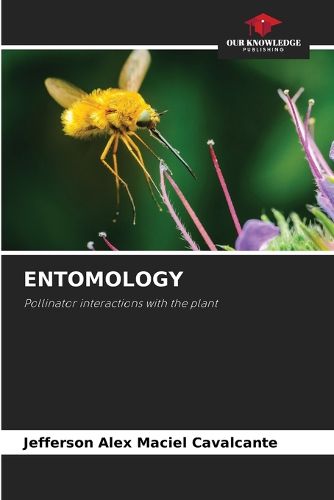Readings Newsletter
Become a Readings Member to make your shopping experience even easier.
Sign in or sign up for free!
You’re not far away from qualifying for FREE standard shipping within Australia
You’ve qualified for FREE standard shipping within Australia
The cart is loading…






In addition to insects, entomology studies the relationship between these animals and humans, other organisms and the environment. From this area of study, entomologists make great contributions to various other fields, such as chemistry, biology, agriculture, human health, among others. The transfer of pollen from the anther of a plant to the stigma of a plant, subsequently allowing fertilization and the production of seeds, is most often done by an animal or the wind.Plants that are pollinated by abiotic agents, such as the wind, tend to have large amounts of pollen and no nectar, odors or strong colors, since they don't need to attract any organisms. When we talk about plants pollinated by biotic agents, we notice a series of adaptations that guarantee the attraction of living organisms and a subsequent reward.
$9.00 standard shipping within Australia
FREE standard shipping within Australia for orders over $100.00
Express & International shipping calculated at checkout
In addition to insects, entomology studies the relationship between these animals and humans, other organisms and the environment. From this area of study, entomologists make great contributions to various other fields, such as chemistry, biology, agriculture, human health, among others. The transfer of pollen from the anther of a plant to the stigma of a plant, subsequently allowing fertilization and the production of seeds, is most often done by an animal or the wind.Plants that are pollinated by abiotic agents, such as the wind, tend to have large amounts of pollen and no nectar, odors or strong colors, since they don't need to attract any organisms. When we talk about plants pollinated by biotic agents, we notice a series of adaptations that guarantee the attraction of living organisms and a subsequent reward.